Biff, Chip and Kipper books: 30 years of teaching children to read
- Published
Roderick Hunt reads Secret of the Sands
They've helped millions of children to read, primary schools brim with them and parents either love them or hate them. They are Biff, Chip, Kipper... and Floppy.
While swathes of the population may be oblivious to these phonics heroes, to others they are their first encounter with the written word and, with their parents, have lived the gang's adventures in the desert, have commiserated with Dad over his latest mishap and admired Gran's new blue shoes - many times over.
Now, after more than 800 titles, becoming a mainstay of the National Curriculum to be used in 80% of the nation's primary schools, they're celebrating hitting 30.
The adventure began when Oxford Reading Tree's publications kicked off with 24 stories in 1986, with the simple aim of teaching young children to read in carefully laid-out stages.
Author Roderick Hunt and illustrator Alex Brychta on the success of Biff, Chip and Kipper
Author Roderick Hunt said he wanted to develop a reading programme based on "humour and fun and motivation" after becoming concerned about his own child's progress.
Illustrated by Alex Brychta, the titles range from the eye-catching (The Bigfoot Mystery, Hairy-Scary Monster, Dragon Danger, Pirate Adventure, Superdog), to the everyday (A Day In London, At the Pool, Gran).
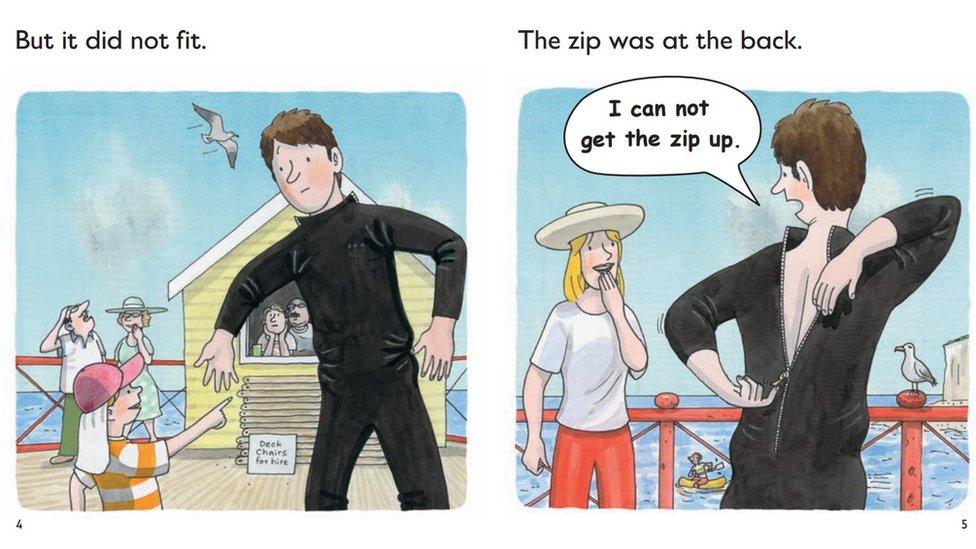
The adventures range from the magical to mundane, but often with a sense of humour
Mr Hunt said he was slow to start reading himself as a child, until a ticking off from a "formidable aunt" when he was six left him so embarrassed he said to himself: "I must crack reading."
He said: "Good reading is so important to human development. So our vision was to get children reading, and get them off picture books and on to the world of print."
Mr Brychta, who was born in what was then Czechoslovakia when it was under the control of the Soviet Union, said the books he was given at school were "absolutely horrible".
"There was no humour at all, it was tedious. I wish I could have had books like the reading tree."
The duo are still trying to keep their books relevant to modern children, with smartphones and digital technology now making appearances.
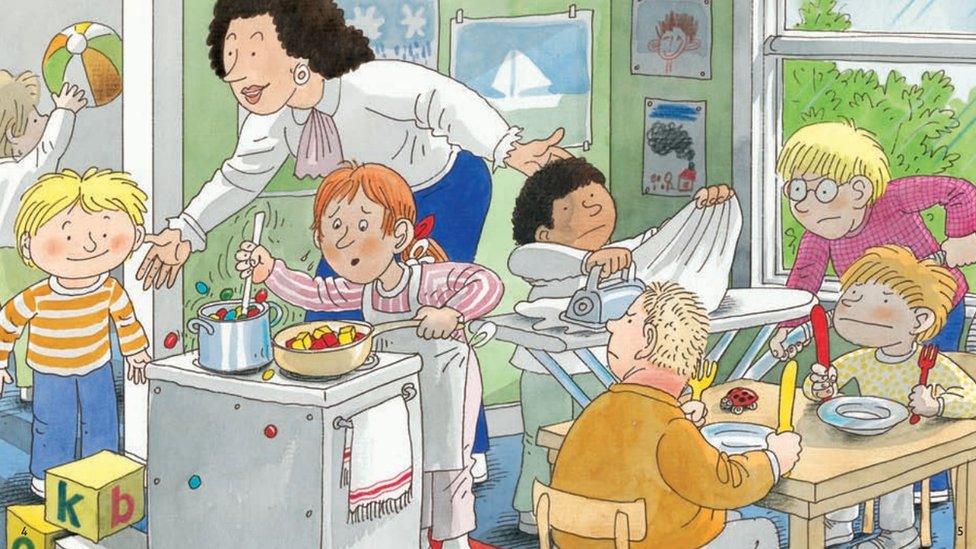
Matt Bibby from Abingdon thinks the books are "great". He devoured them as a child and now reads them to his son Max.
He thinks their success is down to the "story of it all - it's the magic of that magic key".
Yvonne Kyriacou agrees. She's deputy head at Rose Hill Primary in Oxford and has a long history with the books.
"I think back to when I was first teaching… and listening to all the stories about Floppy the dog, and the trouble he got into. I can remember those vividly.
"The longevity might be something to do with the characters and the fact that they often relate to children's everyday lives.
"But then there's that hint of magic in some of the books when the key turns up, and you and the children know that something different is going to happen.
"You might be under the sea, you might be in space, but I think they offer something amazing to children and adults."
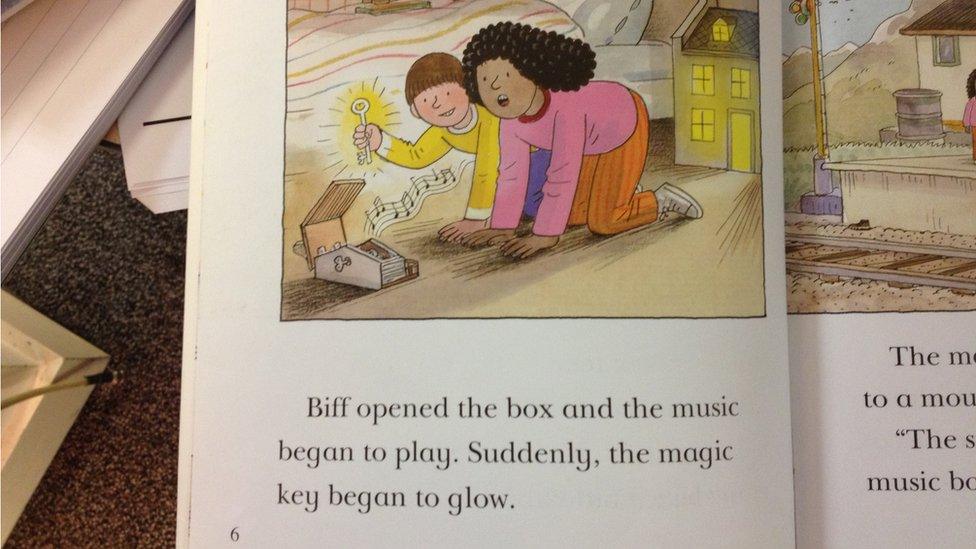
Mr Hunt said the famous magic key allows his characters to have "wonderful adventures, perfectly safely"
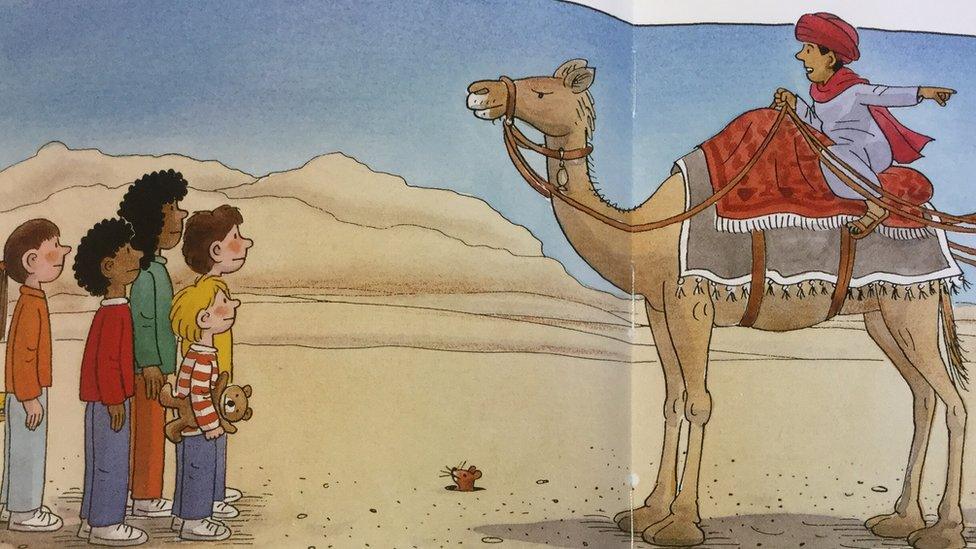
When the magic key glows, it's usually time for another globe-trotting escapade
For her five-year-old pupil Eshaal, the books aren't just about fun.
"I like it because you get to learn," she says, thoughtfully. "Sometimes it's easy and sometimes it isn't easy."
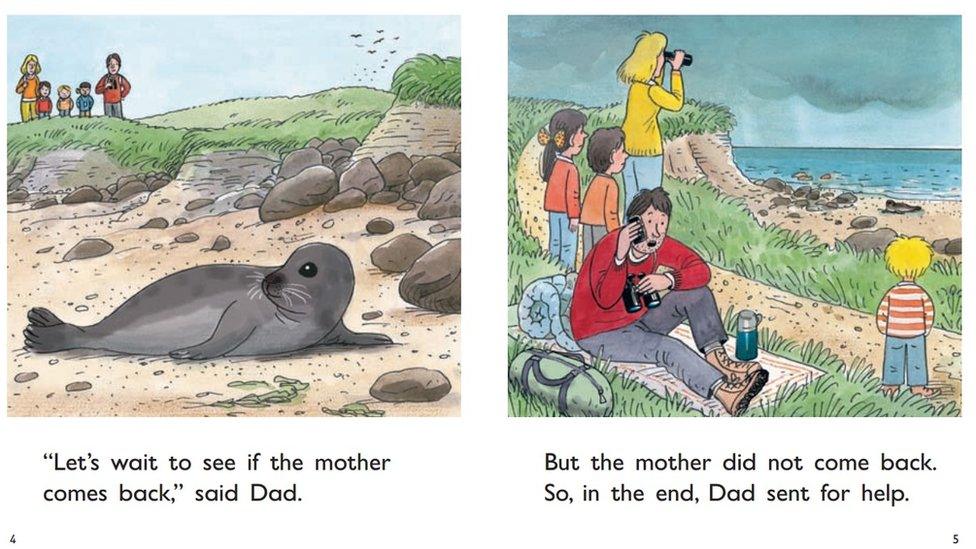
However, not everyone's a fan. Cast an eye over the forums of Mumsnet, and it's clear not all parents are totally down with Biff and co.
"They get a bit monotonous and ergo annoying," writes one. "I still don't know who's who apart from the dog?", says another.
And on Facebook, Catherine, a mum of three from London, suggests the books should be taken into account when planning a family.
"I considered having another child, but the prospect of working my way through Biff, Chip and Kipper for the fourth time was too much," she said.
And then there's speculation on the biggest mystery of all - just what are Biff, Chip and Kipper's real names?
"Elizabeth, David and Christopher," says Mr Hunt.
Another mystery solved.

Oxford Reading Tree - Fact file
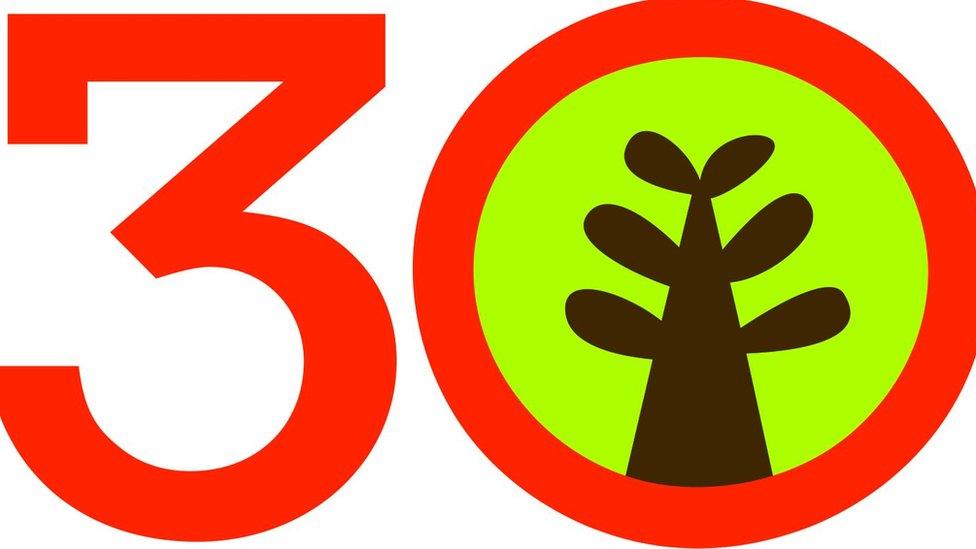
Started in 1986
Publications available in more than 130 countries
Translated into more than 15 languages
Read by 30 million children
More than 800 titles released
Source: OUP, external
